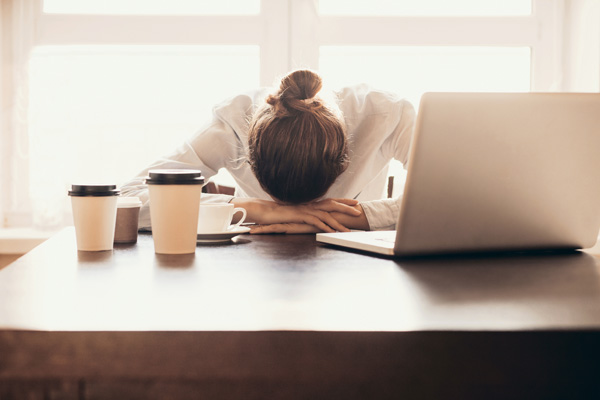Raise your hand if you’ve ever rolled out of bed and right into your office, still half asleep from a bad night of tossing and turning. It happens to most of us, but lack of sleep can actually affect how you view your job. In fact, if you’re miserable at your job, lack of sleep might be to blame. And it might negatively impact whether you want to stay in your job or not.
Sleep affect everything in our lives, from health to our energy levels — even our relationships. But more often than not, it’s overlooked especially when it comes to the workplace. A study from The Sleep Judge took a look at just how powerful sleep (or lack thereof) can be when it comes to work fulfillment.
As it turns out, nearly 4 in 5 employees satisfied with their sleep weren’t looking for another job. And at least two-thirds of employees who are only tired 2 or less days at work are inspired by leadership at their places of employment.
On the other hand, though, employees who were dissatisfied with the zzz’s they got at night were 50% more likely to be hunting other employment. And being happy with their bosses? Well, that also takes a nosedive, especially when people were tired more than three workdays a week. In short, workers are too tired to be inspired by management.
For employers, tired workers aren’t just cranky; they’re a huge liability. Not only are they less productive, but they can be more at risk for health issues, too. It’s estimated that fatigued workers cost their companies a staggering $411 billion annually in lost productivity, NBC News reported.
So how much sleep are satisfied workers getting? According to the study, which surveyed over 1,000 workers, employees who were happier at work were averaging 7.1 hours a night, whereas the fatigued (and dissatisfied) workers only had 6.3 hours nightly. It’s not much of a difference, (less than an hour, really), but it’s enough to negatively impact a worker’s performance.
Interestingly enough, the dissatisfaction amongst tired workers was seen more in certain sectors than others. For example, the percentage of sleep-deprived workers looking for another job spiked in the wholesale and retail industry (53.55), technology (52.4%), and hotel, food serves, and hospitality (47.8%).
That’s why you should take the necessary steps to ensure that you get a good night’s sleep. Try getting to bed earlier, limit the use of electronics (especially your exposure to blue light) before bedtime, and cute down on the caffeine before lights out. Your health, happiness (and your job) just might depend on it.



